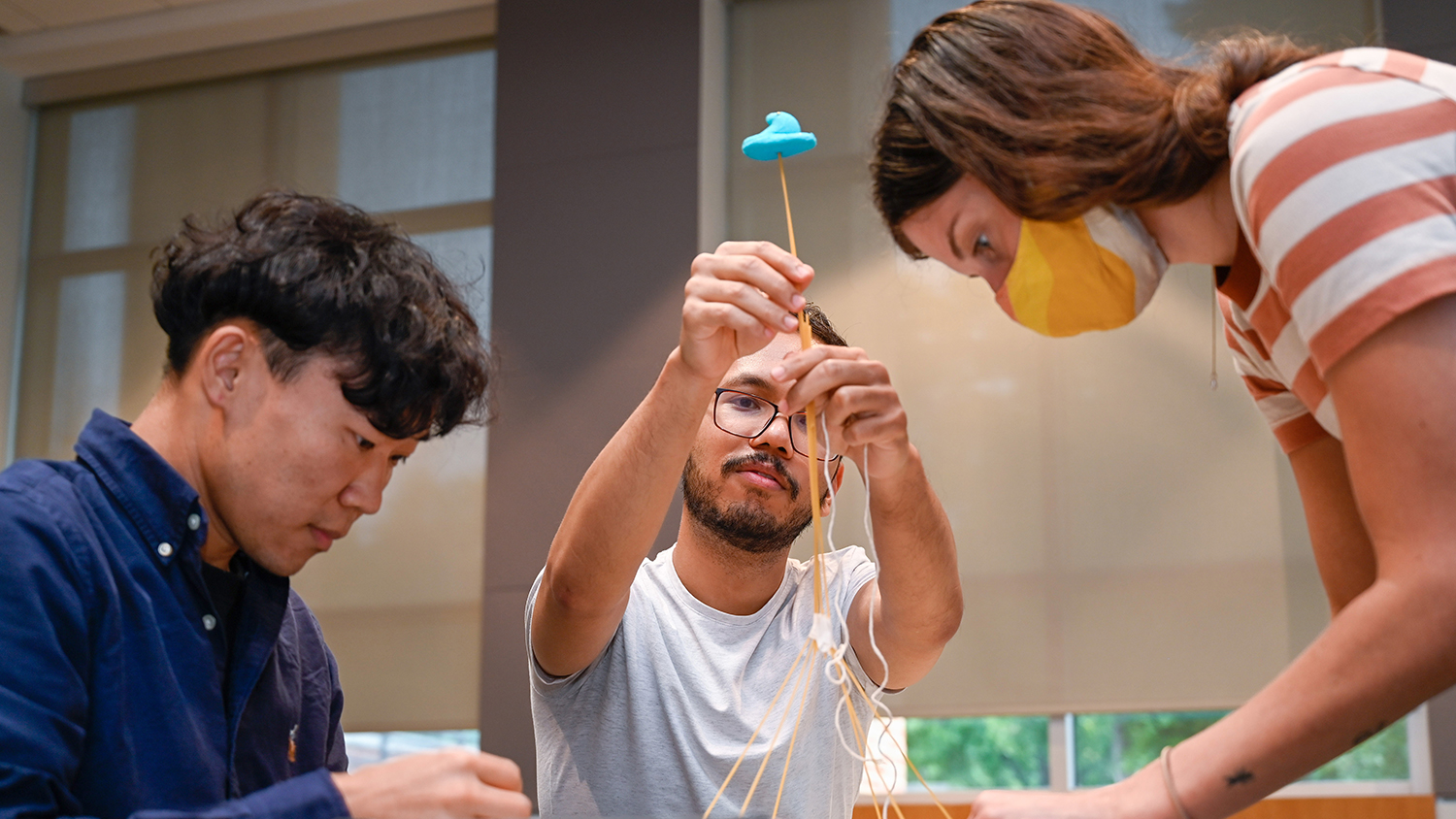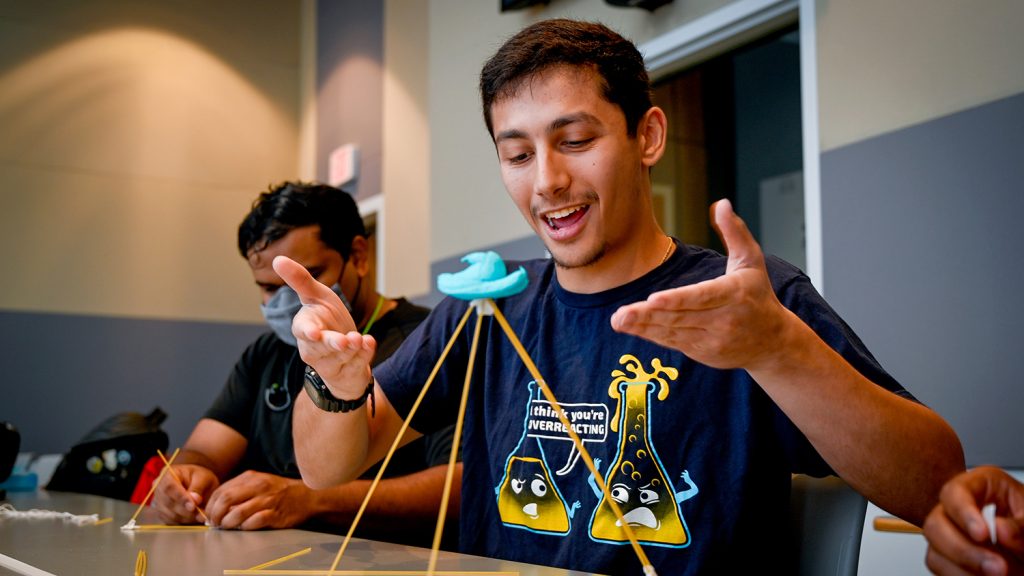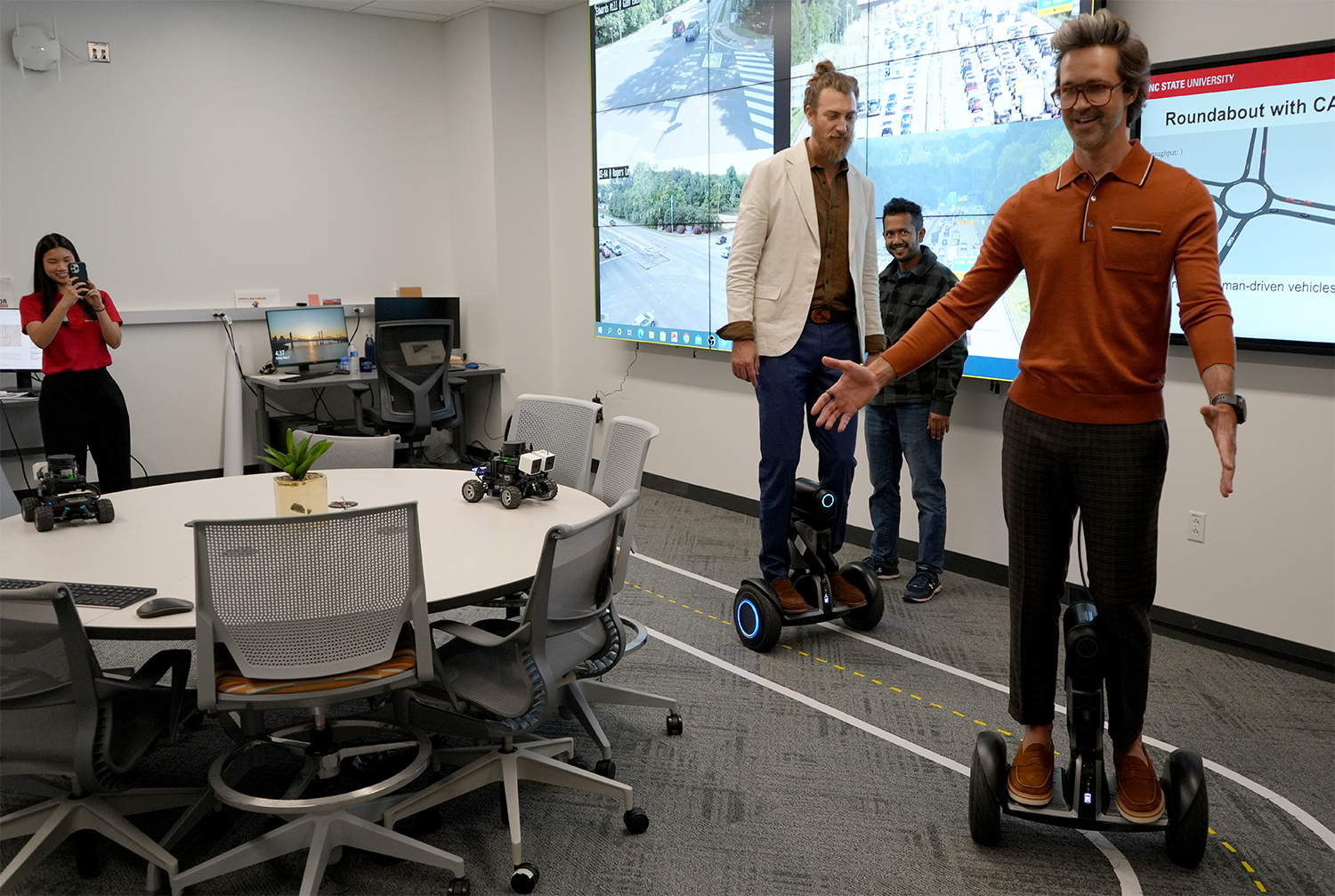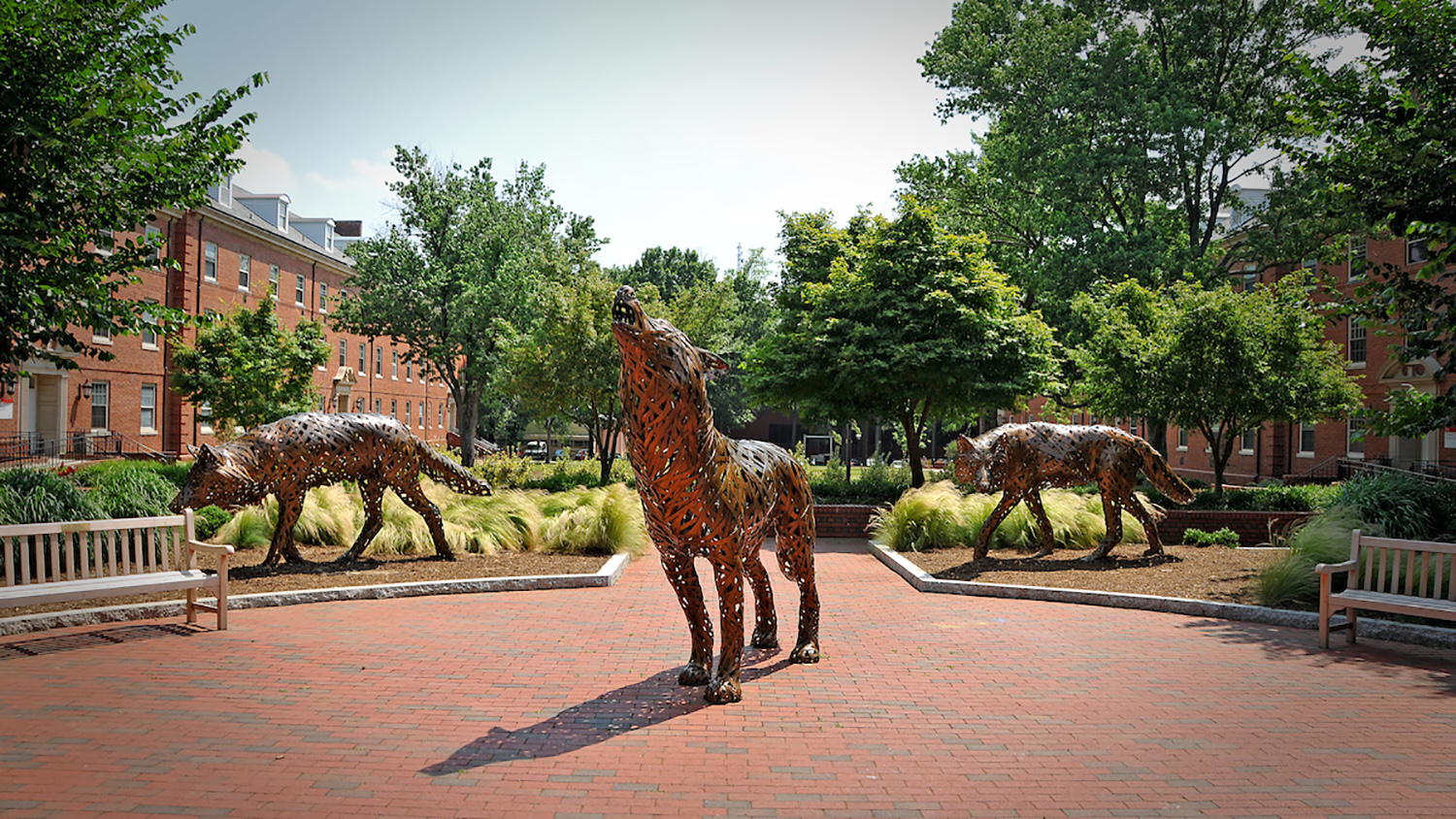A better engineering education
The NC State College of Engineering and College of Education teamed up to develop a unique engineering education curriculum.

This fall, NC State becomes the first university in the United States to start an engineering education program offered jointly by an engineering college and an education college, and the first to ground its program in diversity, equity and inclusion (DEI).
NC State’s College of Engineering (COE) and College of Education (CED) have a long relationship, and the two colleges have been working for six years to develop the Engineering Education program. Faculty members started teaching courses in 2019. There are now five courses available, and they are listed as EED in the course catalogue.
About 60 students have taken EED courses so far, and several will receive their certificates this year. The master’s degree program is on its way to approval, and eventually there will be a Ph.D. program. The courses are geared toward engineers who want to teach at the college level full time as faculty members in engineering disciplines or as engineering education faculty members. In addition, the program is designed to prepare community college instructors to teach engineering courses that will transfer to a four-year university, and even engineers who work in industry and have training or sales responsibilities.
NC State is not the first to develop an engineering education program, and faculty members looked to Purdue University, Virginia Tech and other schools as models when developing curriculum.
“This is the first one where it’s actually 50/50. People ask why would that be, and I’d ask the opposite question,” said Aaron Clark, director of the Department of STEM Education in CED and one of the program’s leaders. “Why would it not be? The two words — engineering education — both of them are disciplines, you can become an engineer, you can become an educator.”
From COE, Laura Bottomley, director of Women in Engineering, The Engineering Place and Engineering Education, has led the initiative, along with faculty members in the Office of Academic Affairs. Tameshia Ballard Baldwin, teaching assistant professor in COE, helped develop the program’s curriculum, and Jerome Lavelle, associate dean of academic affairs, supported the initiative. Kanton Reynolds, director of undergraduate programs and associate teaching professor in the Edward P. Fitts Department of Industrial and Systems Engineering, and Veronica Cateté, assistant professor in the Department of Computer Science (CSC), have also developed and taught several of the program’s courses.
In CED, along with Clark, Tamecia Jones, assistant professor of STEM education, brought her expertise to the curriculum development. Joy Gaston Gayles, senior advisor for advancing diversity, equity and inclusion and professor of higher education in CED, helped finalize the DEI component of the program.
“As we increase the number of engineering students we produce, we want to also increase the diversity of those engineering students,” Bottomley said. “The people who come out of our Engineering Education program will be prepared to teach diverse students in a way that no one ever has been before.”

‘More to engineering’
NC State has long been a leader in engineering education, and the program builds off previous successes. The CSC department, for example, has one of the top computer science education programs in the U.S., and in 2020, was ranked first in the world for computer science education research. The new program will work closely with CSC education students and faculty members.
The program will help fill a need for highly qualified engineering faculty members across disciplines, which will be especially vital as more technology companies come to the area and North Carolina aims to increase its STEM workforce. NC State’s student body is growing by 4,000 through funding from the Engineering North Carolina’s Future initiative, which means the College will need more engineering and computer science faculty members. With the growth, the College will also be looking to further increase diversity in its student body and faculty.
Baldwin, who was on the team that developed the curriculum, said that with both CED and COE coming together, the future faculty members coming from NC State will be well-prepared educators. Through the EED courses, students will learn how to create student learning assessments, develop lesson plans, implement current trends and more.
They will also be equipped to help make engineering — both in school and in the workforce — more equitable and inclusive of everyone.
“Developing an engineering education program with a DEI-focused underpinning will lead to graduates who not only have the required technical and pedagogical foundation, but also a knowledge and appreciation of DEI and its impact across the engineering education enterprise,” she said. “With the increased focus on DEI efforts across COE and the University in the past several years, in particular, this program is very timely in its objectives and approach.”
Amy Isvik, a fifth-year computer science Ph.D. student, has taken all of the EED classes available and earned the EED certificate. Her research focus is in computer science education, with an emphasis on improving access to computing. One of the most important things she’s learned during the EED courses is figuring out what questions she needs to be asking as she develops lessons to ensure they are effective for all students.
After graduation, Isvik hopes to work in STEM outreach, specifically in expanding informal STEM education opportunities to students.
“There is more to engineering than just having outstanding research labs,” she said. “We also need to be able to deliver quality instruction to our students, nurture their passions and interests and ensure an equitable environment for learning.”
- Categories:


